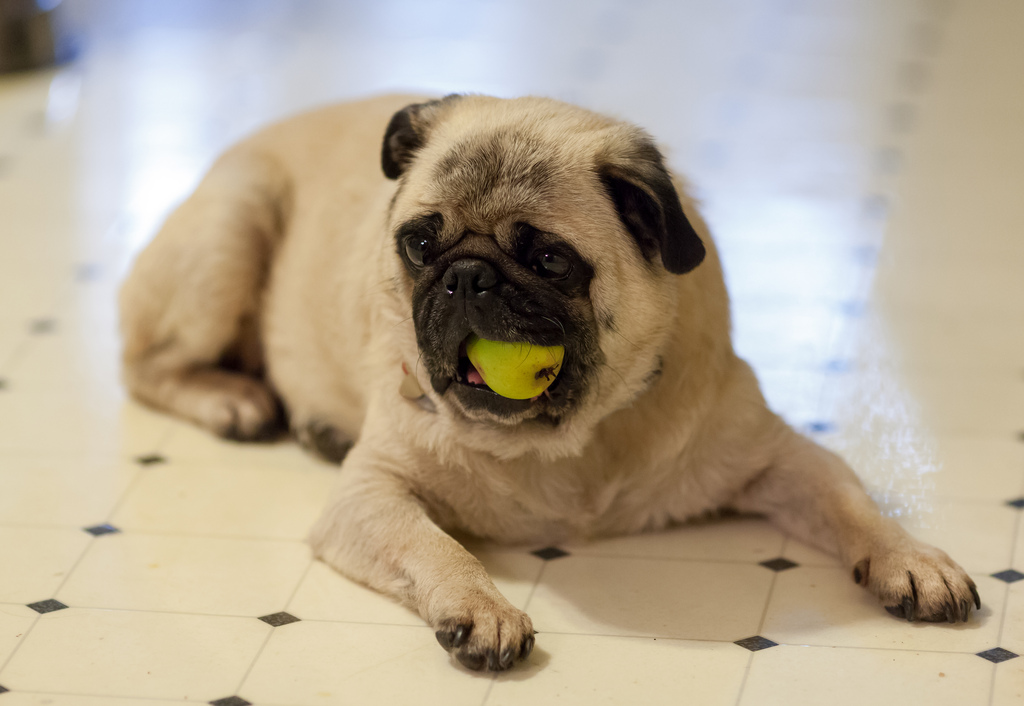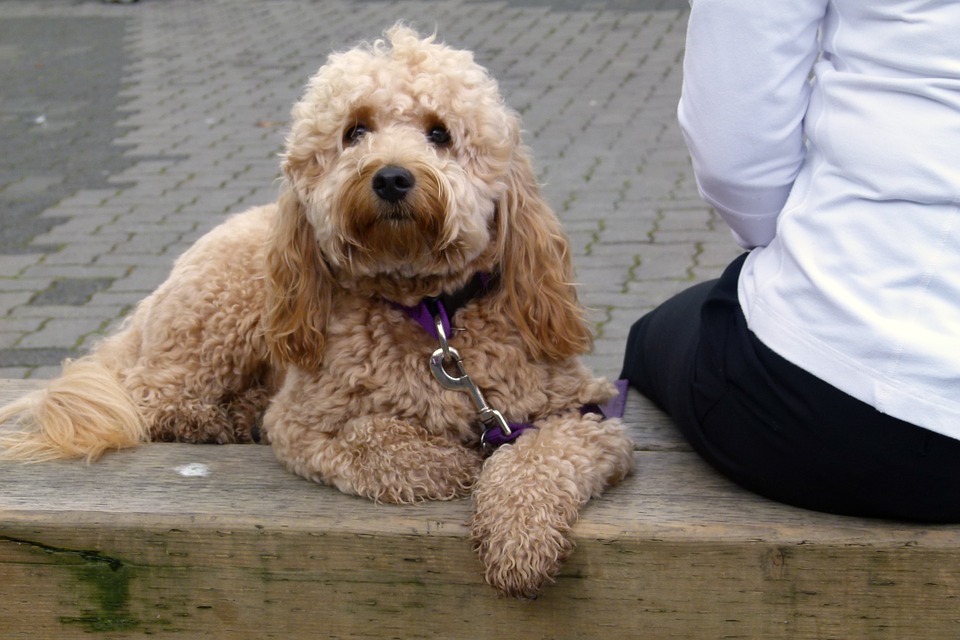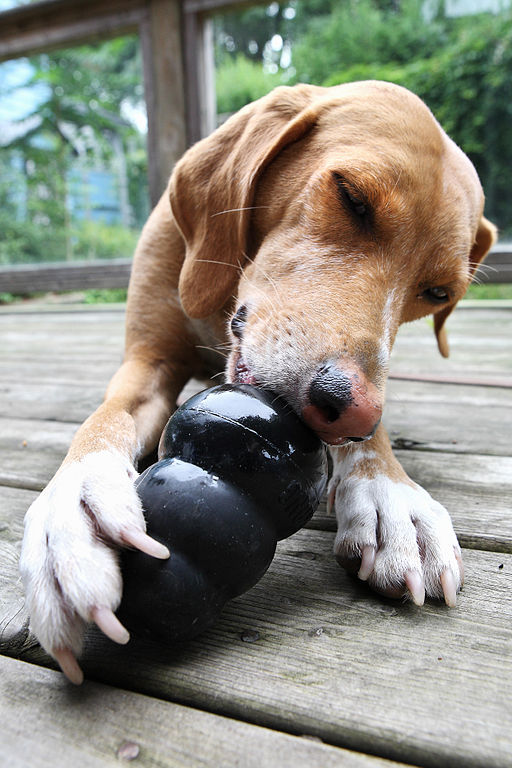
What’s the best food for dogs? What should your dog’s diet look like? What foods are bad for dogs, what foods are good, what foods are healthy and what foods are toxic/poisonous? The purpose of this page is to answer those questions and more.
This is a foundation page. It is the longest page we have on dog nutrition but it’s also one of the least specific. Attached to this page there are hundreds of small pages going into detail about specific foods, flowers, substances, drugs and more that dogs can or can not eat. So, if you want to know more about those specific foods, then simply look for links below, check the menus or use the search bar.
Your Dogs Diet
Dogs are like vacuum cleaners. They will eat anything and everything. They definitely don’t have discerning tastes and this can make it difficult to keep them away from the foods that will cause them harm. This isn’t unique to dogs, but it’s definitely at its worst with dogs.
For instance, chocolate is toxic to dogs, but you can guarantee that they will eat as much of it as they can get their paws on and then deal with the consequences afterwards. So, it’s important to be vigilant as a dog owner; it’s important to keep harmful foods out of reach, to make sure they only eat what’s good for them (plus a few treats).
One of the issues with discovering just what your dog should eat and what a nutritionally balanced diet is, is that any search terms you might use relating to this will lead to product landing pages for dog food, as well as thinly veiled websites selling dog food. And because money talks with these ads, it’s the biggest brand and not the best food that wins.
That’s why it’s essential to look at the ingredients, to do your research and to focus more on quality and less on brand power. You can take all of the following into account when searching for the best food or even creating your own:
Healthy Diet for Dogs
Later we will break down individual foods, but right now let’s focus on the basics. This is what your dog needs every day*:
40% Protein: This is essential to help them grow and stay strong. Red meat is particularly good for dogs. It is loaded with amino acids and can help to keep them strong and healthy.
30% Vitamins and Minerals: An essential part of any dog’s diet. They need these for the same reasons that we do.
20% Carbs: Although it’s a small part of their diet, it’s still an essential one. It helps to bulk up their stools and improve digestion, but it also helps with energy. Focus on grains like rice and you can’t go much wrong.
10% Fats: Fats that are raw and unprocessed are good for your dog. They are efficient at turning these into energy, but they also help to give them a lustrous coat.
Plenty of Fresh Water: Always make sure this is available. Dogs drink a lot of water.
*All of the percentages are estimations based on an average. A dog’s diet will change depending on size and breed, as well as any health conditions and genetic predispositions.
Foods Dogs Can Eat
So, what human foods are safe for dogs to eat? As you probably know, they will try and eat everything in your kitchen. They will greed off everything that’s on your plate and unless they are ill, they will rarely say no. In fact, it’s not unusual for a dog to throw-up and then go searching for more food.
Take a look at these lists to see just what kind of human foods are safe, after which we will look at the ones that are not.
Nuts Dogs Can Eat
Nuts are very dangerous for dogs. Some of them can cause serious damage and this food group should not be taken lightly. One of the misconceptions with this issue is that many know peanut butter is a particular favorite with dogs and it is often recommended as a healthy dog treat. This is true, but peanuts are not technically nuts, and most actual nuts are toxic.
If you are going to use peanut butter, then make sure it is natural. Added sugars and oils are not healthy, but the raw, natural peanut butter is. It is a great source of protein and B Vitamins.
We also have it on fairly good authority that dogs can eat cashews, but keep the doses very low. They are fatty and are not the best way for them to get their calories.
Fruit Dogs Can Eat
Many fruits are okay for dogs, including some ones that might surprise you. These provide vitamins and minerals and fruits like watermelon can also be a refreshing way for your dog to hydrate during the summer.
- Apples
- Bananas
- Blueberries
- Cantaloupe Melon
- Coconut
- Cranberries
- Mangoes
- Oranges
- Peaches
- Pears
- Pineapple
- Raspberries
- Strawberries
- Watermelon
Vegetables Dogs Can Eat
Vegetables don’t have the protein that dogs crave, but they can be a good source of the carbs and fiber they need.
- Broccoli
- Carrots
- Celery
- Cucumbers
- Green Beans
- Peas
- Potatoes
- Spinach
- Sweet Potatoes
Food Dogs Can’t Eat/Poisonous Foods

So, now that you know what dogs can eat, its time to discuss what human foods dogs can’t eat:
- Cherries: Parts of cherry and the cherry plant contain cyanide, which is toxic and is deadly to dogs in doses that would not harm humans.
- Grapes/Raisins: Grapes are very toxic for both dogs and cats.
- Mushrooms: Wild mushrooms can be toxic. Most are probably okay, but is it worth the risk?
- Tomatoes: Although these fruits are mostly okay, the green parts of the plant can be toxic, so it might be better to be safe than sorry.
- Nuts: As mentioned above, nuts are often very toxic. This is especially true of almonds and macadamia nuts, which are some of the worst ones, but others may be toxic as well.
- Cinnamon: This is not highly toxic, but it can cause irritation to a dog’s mouth.
- Chocolate: This is not an old wive’s tale. Dogs really can’t eat chocolate. They might escape if they consume a small amount, but you should never give it to them and even a moderate dose could cause serious damage.
- Onions: These are toxic to cats and they are toxic to dogs for the same reason. Anything in this family should be avoided.
- Garlic: In the same family as onions, they are incredibly toxic.
Unhealthy Food for Dogs
Generally, anything that is heavily processed is not great. You may also want to avoid giving them bones that were not designed to be fed to dogs, as they can splinter and damage their mouths, throats and stomachs. White bread and most other types of bread are also unhealthy. They will provide the dog with a lot of calories but with minimal protein and nutrients. In other words, it will fill them up without actually doing them any good.
The issue that many dogs have is that they greed from their human owners, and because so much human food is processed, high in fat, salt and sugar, this can cause them to become obese and unhealthy. You might think that it’s okay to feed them a few scraps every now and then, and it is, but if you’re in a big family then you might just be one of 5 or 6 people doing that.
So, monitor your dog’s diet, keep processed foods to a minimum and don’t overdo it on salt, sugar and fat.
Questions on your Dog’s Diet
Still have a few questions regarding your dog’s diet? We’ve discussed healthy and poisonous food for dogs, now let’s get a few of your other frequently asked questions concerning dog’s diets out of the way.
How Long Can a Dog Go Without Eating?
If a dog is healthy than it can go several days without food. It can not go as long without water though and you should never avoid feeding your dog. They are more reliant on humans for food than many other animals and as they need that food to survive and to stay healthy, it would be cruel to deprive them of it.
Best Human Food for Dogs
It’s hard to say any one thing, but red meat, occasional dairy products, cooked chicken and grains are all healthy for dogs. Really though, it’s all about a balanced diet that contains a lot of healthy food.
Can Dogs Eat Cat Food?

Dogs can handle cat food more than cats can handle dog food, providing that the food in question is wet and fish-based. However, you should not feed them this on a regular basis. It’s probably not going to cause any issues if they have simply stolen a bite of the cat’s dinner (although it will depend on the food and the dog’s health/allergies), but as the food is specially formulated for cats and not for dogs, you should not feed them this on a regular bass.
Why Do Puppies Need Different Food?
Puppies are growing. Their bodies are still developing. They need different food for the same reason that a baby needs different food. Puppy food is often energy dense, formulated to supply them with the essential fat and protein they need to grow strong and healthy. Feeding a dog on puppy food may cause overrating and obesity, while feeding a puppy on dog food could cause digestive distress, growth issues and other problems.
Always look to give your pet food that was designed for their size, their age and their breed. Contrary to what some people might tell you, these different formulations are not scams created to make more money.
Do Different Breeds of Dog Need Different Food?
Their diets are different. They may need more or less food; they may need specific foods. Generally a dog’s diet doesn’t change that much. It’s still the same animal. However, the difference in breeds can equate to a huge difference in size, muscle density, energy levels and other essential things that require a change in diet.
Can Dogs be Vegetarian?
There is a lot of positive information out there that suggests that dogs can be vegetarian. Meat eaters will dispute this and say that it goes against nature, but the same can be said for many things that work, and it’s an excuse that just doesn’t hold water. If you are a vegetarian and are not comfortable giving your dog meat, then you might be able to find alternative diets.
However, as with human vegetarians, it will require more thought in order to get the right nutrition. So, do your research and make sure you can make it work. We can’t condone this either way as we have no experience in it, but we can certainly respect the reasoning behind it and the research out there is promising.
Can Dogs Survive on a Vegan Diet?
In our Foods Cats Can Eat page we mentioned that if it was possible for cats to be vegetarians then it would also likely be possible for them to be vegan. After all, cats are lactose intolerant and most dairy is out of the question anyway. However, dogs are not, so there is a big leap between being vegetarian and vegan.
It may still be possible, but it would require even more effort and research to make it work and there is even less research out there on its effectiveness. When they have no bias, experts tend to agree that it is possible. There are foods out there that are designed to provide dogs with everything they need while not giving them meat or dairy.
If you are going to do this we would recommend that you discuss it with your vet first. They should know what is best for them and they can advise accordingly.